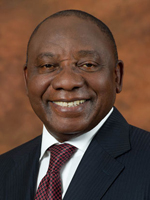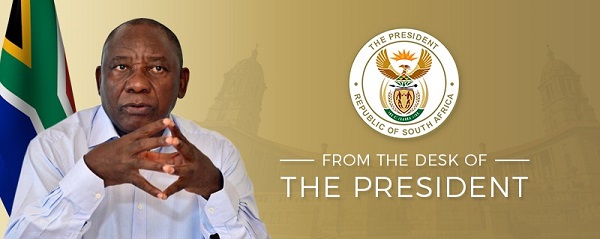 Dear Fellow South African,
Dear Fellow South African,
Across the world, countries are having to grapple with their past as they confront the challenges of today. The past that countries deal with is often about atrocities that were committed against sections of their people.
Dealing with the memory of past atrocities is one of the most difficult and delicate tasks a nation can undertake. This can be a cathartic process but is vital if a country is committed to enhance national healing, cohesion and unity. The way a country remembers its painful past can shape the character of it democracy, the legitimacy of its institutions and the resilience of its people.
As a country, we have had to contend with our past in the interests of social cohesion and nation-building. We have advanced policies of restitution and redress to both acknowledge and correct the historical injustice of apartheid.
We remain equally committed to restoring the dignity of apartheid’s countless victims and to bringing closure to their families.
Over the past weekend we reburied the remains of Adv Duma Nokwe, a hero of the anti-apartheid struggle and former Secretary-General of the African National Congress, who died in exile in Zambia in 1978.
Nokwe was the first black advocate to be admitted to the Johannesburg Bar, and both a defendant and a member of the defence team in the treason trial of 1956. In recognition of his contribution to the legal fraternity, we conferred him the status of senior counsel posthumously.
Duma Nokwe was one of 42 former liberation heroes and heroines who passed away in exile whose remains were repatriated from Zambia and Zimbabwe in September last year. We are grateful for the countries that gave our people shelter and support in exile and provided a resting place for those who died before they could return home.
Many families in this country lost their loved ones to apartheid brutality and live with these scars. The apartheid regime even pursued activists that had fled the country and their whereabouts remain unknown.
In 1994 we chose a path of national reconciliation. We established the Truth and Reconciliation Commission (TRC) to shed a light on the atrocities committed during apartheid.
Even as democratic South Africa attempted to unearth what happened and to hold those accountable to account, many apartheid-era security officials either refused to appear before the TRC or did not fully disclose their actions. Others resorted to delaying tactics and obstruction to evade trial.
As we recently announced, I am in the process of establishing a judicial commission of inquiry to look into allegations of interference in the investigation and prosecution of apartheid-era crimes referred by TRC.
As government we remain steadfast in our commitment to restoring the dignity of activists who died and were buried abroad, and to our country men and women who were subjected to indignities in foreign lands.
This is being done within legal frameworks such as the National Heritage Resources Act. This framework facilitated the repatriation of Sara Baartman’s remains for burial in South Africa in 2002. We have also developed a draft National Policy on the Repatriation and Restitution of Human Remains and Heritage Objects which will guide our efforts going forward.
The Department of Sport, Arts and Culture and other government institutions continue to engage with several countries to facilitate the return of human remains.
Even today some museums and universities in western Europe have collections that contain human remains of South Africa’s Khoi and San people. In 2012, South Africa facilitated the return of the remains of a Khoi couple dubbed Klaas and Trooi from a museum in Vienna, after they had been illegally exhumed and smuggled abroad more than 100 years earlier.
The American novelist William Faulkner once wrote: “The past is never dead, it’s not even past.”
For the many families and communities across this country who never got the opportunity to lay their loved ones to rest or to even know how they died, the past will continue to cast a long shadow.
In the interests of national reconciliation, in the interests of moving forward, we will continue with our efforts to restore dignity to all those who were denied it in life.
A heavy price was paid by many for the democracy we have today. This should continue to inspire us as we work together towards a shared future.
With best regards,
Cyril Ramaphosa is the President of South Africa





